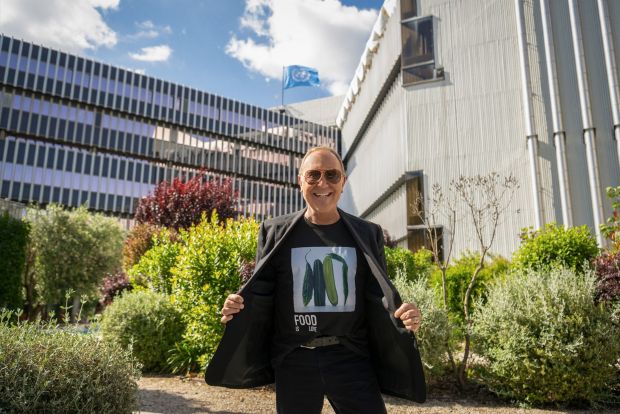Michael Kors donates US$2.7 million to support school meals and farmers in Sri Lanka
COLOMBO – Global fashion brand Michael Kors has donated US$2.7 million to support the wellbeing of schoolchildren and local farmers in Sri Lanka, through the United Nations World Food Program (WFP).
The contribution, made under Michael Kors’ long-running ‘Watch Hunger Stop’ campaign, will bolster Sri Lanka’s national school meals program and help expand the Home-Grown School Feeding (HGSF) initiative, the WFP said in a statement.
The funding will enable the WFP to extend its home-grown school feeding program from eight to ten districts, ensuring that 250,000 children receive nutritious meals daily over the next three years.
In addition to providing meals, the project will also support 1,500 local farmers and caterers by sourcing fresh, locally grown produce, thereby strengthening rural livelihoods and local food systems.
“This generous contribution from Michael Kors will help us reach more children with healthy, locally sourced school meals while supporting the farmers who produce that food,” a WFP spokesperson said. “It’s an investment in both nutrition and community resilience.”
WFP has supported Sri Lanka’s national school meal program since 2003, working closely with the government to ensure that every child has access to nutritious food during the school day.
In 2021, Sri Lanka joined the WFP-led Global School Meals Coalition, pledging its commitment to provide healthy, balanced meals to all schoolchildren. Through this partnership, WFP offers technical and capacity-building assistance to help address nutrient deficiencies and promote sustainable food systems in schools.
The Home-Grown School Feeding model aims to link local agricultural production with school meal programs, ensuring that children receive fresh food while empowering small-scale farmers, particularly women, to secure stable markets for their produce.
Michael Kors’ Watch Hunger Stop campaign, launched in 2013, partners with the WFP to fund school meal programs in countries facing food insecurity. The campaign has helped provide more than 30 million meals globally.
Sri Lanka’s school meal program currently benefits over one million students across the country and has been recognized as a critical intervention in improving classroom attendance, learning outcomes, and child nutrition, particularly amid rising food prices and economic challenges.
-ENCL



Comments are closed, but trackbacks and pingbacks are open.